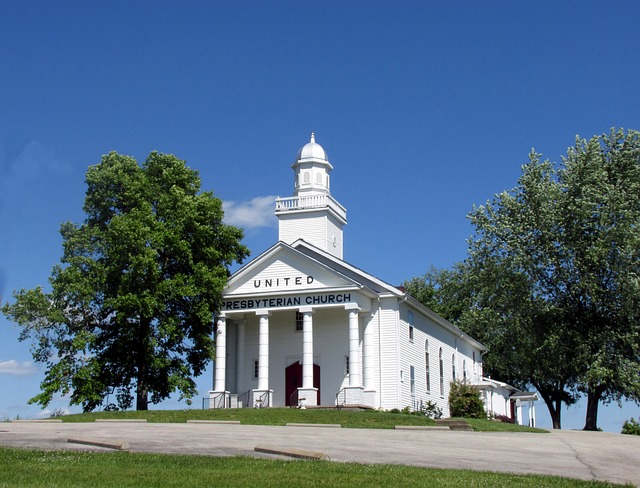Presbyterians are a Protestant Christian denomination that holds to a set of beliefs and practices. They emphasize the sovereignty of God, the authority of Scripture, and the importance of faith in Jesus Christ for salvation. They also value the role of the church community, the sacraments, and the pursuit of social justice.
Table of Contents
The Doctrine of Predestination in Presbyterian Beliefs
What do Presbyterians believe? This is a question that many people have when it comes to understanding the beliefs and practices of this particular Christian denomination. One key aspect of Presbyterian beliefs is the doctrine of predestination. This doctrine holds that God has predestined certain individuals to be saved and others to be damned.
The doctrine of predestination is rooted in the teachings of John Calvin, a prominent figure in the Protestant Reformation. Calvin believed that God has complete control over all aspects of the universe, including the salvation of individuals. According to Calvin, God has chosen certain individuals to be saved before the foundation of the world, and there is nothing that anyone can do to change their ultimate destiny.
This belief in predestination can be a difficult concept for many people to grasp. It raises questions about free will and the fairness of God’s judgment. However, Presbyterians believe that God’s ways are beyond human understanding and that it is not for us to question His decisions. They believe that God is just and righteous in all His actions, even if we do not fully comprehend them.
The doctrine of predestination also has implications for how Presbyterians view salvation. They believe that salvation is a gift from God that cannot be earned or deserved. It is solely by God’s grace that individuals are saved, and there is nothing that they can do to earn their salvation. This belief is often referred to as “salvation by grace alone.”
However, this does not mean that Presbyterians believe in a passive approach to faith. They believe that faith is a necessary response to God’s grace. While individuals cannot earn their salvation, they are called to respond to God’s grace with faith and obedience. Presbyterians believe that faith is a gift from God, but it is also something that individuals must actively embrace and cultivate in their lives.
The doctrine of predestination also shapes how Presbyterians view the role of the church. They believe that the church is a community of believers who have been chosen by God for salvation. The church is seen as a place where individuals can grow in their faith and receive the means of grace, such as the sacraments of baptism and the Lord’s Supper.
In summary, the doctrine of predestination is a central belief in Presbyterian theology. It holds that God has predestined certain individuals to be saved and others to be damned. While this belief can be challenging to understand, Presbyterians believe that God’s ways are beyond human comprehension and that it is not for us to question His decisions. They believe in salvation by grace alone, but also emphasize the importance of faith and obedience in response to God’s grace. The doctrine of predestination shapes how Presbyterians view salvation and the role of the church in the lives of believers.
The Role of Scripture in Presbyterian Theology

Presbyterians are a Christian denomination with a rich theological tradition. One of the key aspects of Presbyterian theology is the role of scripture. Scripture holds a central place in the beliefs and practices of Presbyterians, guiding their understanding of God, salvation, and the Christian life.
For Presbyterians, the Bible is considered the inspired word of God. They believe that God has revealed himself through the scriptures, and that it is the ultimate authority for faith and practice. This means that Presbyterians look to the Bible as their primary source of guidance and wisdom.
Presbyterians believe in the importance of interpreting scripture in its historical and cultural context. They recognize that the Bible was written by human authors who were influenced by their own time and culture. Therefore, understanding the historical and cultural background of the biblical texts is crucial for interpreting them accurately.
Presbyterians also emphasize the need for careful study and interpretation of scripture. They believe that the Holy Spirit guides believers in their understanding of the Bible, but they also recognize the importance of using reason and intellect to interpret the scriptures. This means that Presbyterians engage in rigorous study of the Bible, using tools such as biblical commentaries, historical research, and linguistic analysis to gain a deeper understanding of the text.
The Presbyterian approach to scripture is characterized by a commitment to the authority of the Bible, but also a recognition of its complexity and diversity. Presbyterians believe that the Bible contains a variety of literary genres, including history, poetry, prophecy, and letters. Each genre requires a different approach to interpretation, and Presbyterians strive to understand the intended meaning of each biblical text.
Presbyterians also believe in the unity of scripture. They see the Bible as a coherent whole, with each part contributing to the overall message of God’s redemptive plan. This means that Presbyterians seek to interpret individual passages in light of the broader biblical narrative, looking for connections and themes that run throughout the scriptures.
The role of scripture in Presbyterian theology extends beyond personal devotion and study. It also informs the worship and governance of the church. Presbyterians believe that the Bible provides guidance for how the church should be organized and how worship should be conducted. They look to the scriptures for principles of church government and for the elements of worship that are pleasing to God.
In summary, the role of scripture in Presbyterian theology is central and foundational. Presbyterians believe that the Bible is the inspired word of God and the ultimate authority for faith and practice. They approach scripture with careful study and interpretation, recognizing its complexity and diversity. The Bible informs not only personal devotion and study but also the worship and governance of the church. Presbyterians see the scriptures as a coherent whole, guiding their understanding of God, salvation, and the Christian life.
Presbyterian Views on Sacraments and Worship
Presbyterian Views on Sacraments and Worship
When it comes to sacraments and worship, Presbyterians have a unique perspective that is rooted in their beliefs and traditions. Understanding their views on these important aspects of their faith can provide valuable insight into the Presbyterian way of worship.
One of the central beliefs of Presbyterians is the concept of the sacraments. They believe in two sacraments: baptism and the Lord’s Supper. Baptism is seen as a sign and seal of God’s covenant with his people. It is a symbolic act that represents the washing away of sin and the initiation into the Christian community. Presbyterians practice both infant baptism and believer’s baptism, depending on the individual’s understanding and commitment to their faith.
The Lord’s Supper, also known as communion, is another significant sacrament for Presbyterians. They believe that during this sacred meal, the bread and wine become the body and blood of Christ in a spiritual sense. This act of communion is seen as a way to remember and participate in the sacrifice of Jesus Christ. Presbyterians view the Lord’s Supper as a means of grace, where believers can experience the presence of Christ and be nourished spiritually.
In terms of worship, Presbyterians have a structured and reverent approach. They believe in the importance of corporate worship, where the entire congregation comes together to praise and worship God. The Presbyterian worship service typically includes elements such as prayers, hymns, scripture readings, and a sermon. The order of worship may vary slightly from one congregation to another, but the overall structure remains consistent.
Presbyterians also place a strong emphasis on the preaching of the Word. They believe that the sermon is a vital part of worship, as it provides an opportunity for the congregation to hear and reflect on God’s message. The sermon is typically based on a passage from the Bible and is intended to teach, inspire, and challenge the listeners. Presbyterians value the authority of scripture and believe that it should guide their beliefs and actions.
Another important aspect of Presbyterian worship is the use of music. Hymns and psalms are an integral part of their worship service, and they are often sung by the congregation. Presbyterians appreciate the rich tradition of hymnody and value the theological depth and spiritual significance of the songs they sing. Music is seen as a way to express praise and adoration to God and to unite the congregation in worship.
Presbyterians also believe in the priesthood of all believers, which means that every member of the congregation has a role to play in worship. They encourage active participation from all members, whether it be through reading scripture, leading prayers, or serving in other capacities. This sense of community and shared responsibility is an important aspect of Presbyterian worship.
In conclusion, Presbyterians have a distinct perspective on sacraments and worship. They believe in the significance of baptism and the Lord’s Supper as sacraments that connect believers to God’s covenant and grace. Their worship services are structured and reverent, with an emphasis on the preaching of the Word and the use of music. Presbyterians value the participation of all members in worship and strive to create a sense of community and shared responsibility. Understanding these views can provide a deeper appreciation for the Presbyterian way of worship.
Presbyterian Church Government and Polity
Presbyterian Church Government and Polity
So, you’re curious about what Presbyterians believe? Well, let’s dive into the fascinating world of Presbyterian Church government and polity. This aspect of Presbyterianism is a key component of their faith and plays a significant role in shaping their beliefs and practices.
First things first, what exactly is church government and polity? In simple terms, it refers to the way a church is organized and governed. Different Christian denominations have different systems in place, and Presbyterians have their own unique approach.
Presbyterians believe in a representative form of church government, which means that decisions are made by elected representatives rather than a single individual or a hierarchical structure. This system is rooted in the belief that all members of the church are equal and have a voice in decision-making.
At the heart of Presbyterian church government is the session. The session is a group of elected elders who are responsible for the spiritual oversight and governance of a particular congregation. These elders, chosen by the congregation, serve as leaders and shepherds, guiding the church in matters of faith and practice.
The session is led by a pastor, who is also an elder. Together, they make decisions regarding worship, sacraments, and the overall direction of the church. This collaborative approach ensures that the congregation’s voice is heard and that decisions are made in the best interest of the entire community.
But it doesn’t stop there. Presbyterians also have a higher governing body called the presbytery. The presbytery consists of representatives from multiple congregations within a specific geographic region. This body provides oversight and support to individual churches, ensuring that they adhere to the principles and beliefs of the Presbyterian faith.
The presbytery is responsible for ordaining and installing ministers, examining candidates for ministry, and resolving disputes within the church. It serves as a connection between individual congregations and the wider Presbyterian denomination, fostering unity and collaboration.
Above the presbytery, there is the synod, which is a regional governing body that oversees multiple presbyteries. The synod provides a platform for communication and coordination between different presbyteries, ensuring consistency and accountability within the denomination.
Finally, at the highest level, there is the General Assembly. The General Assembly is the highest governing body of the Presbyterian Church and consists of representatives from presbyteries across the country. It meets annually to discuss and make decisions on matters of doctrine, worship, and church policy.
The General Assembly is responsible for interpreting the Bible, formulating statements of faith, and addressing issues of social justice and morality. It serves as the voice of the entire Presbyterian Church, representing the collective beliefs and values of its members.
In conclusion, Presbyterian Church government and polity are integral to the beliefs and practices of Presbyterians. Their representative form of church government ensures that all members have a voice and that decisions are made collectively. From the session to the General Assembly, each level of governance plays a crucial role in shaping the Presbyterian faith and guiding its followers. So, the next time you wonder what Presbyterians believe, remember that their church government and polity are key components that help define their unique perspective on Christianity.
Conclusion
Presbyterians believe in the sovereignty of God, the authority of the Bible, salvation through faith in Jesus Christ, and the importance of the church community. They emphasize the priesthood of all believers and the democratic governance of the church. Worship and sacraments hold significant importance in their faith. Overall, Presbyterians have a strong commitment to theological education and social justice.


